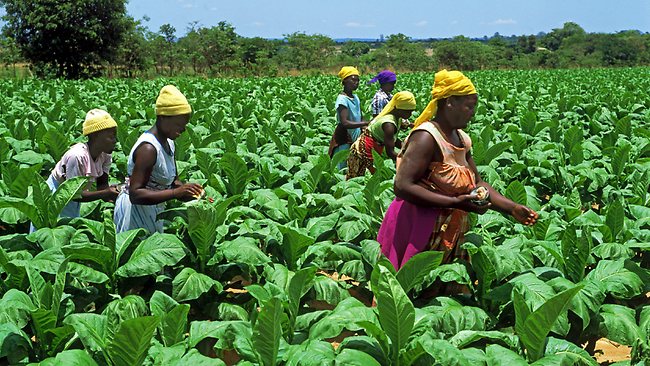By Bustop TV Features Writer
The government of Zimbabwe shocked many on August 31 as they announced a ‘reversal’ of the land reform programme. The biggest question on most people’s lips is, is this a genuine exercise or is it buying time or an exercise meant to win over foreign acceptance?
It has to be known that one of the reasons why the ruling government always sought to quash any efforts from the opposition to try and get hold of power was a communication that the opposition was going to sell out by giving whites back the land. Now the reversal has been done by the same ruling party, people seem to have mixed feelings about this sudden U-turn.
The first thing that has to be considered is that the ruling party, in the early 2000s, were cut off from the international community as Britain under Tony Blair criticised the violent manner in which land was taken from whites. Anti-government press to the land grabs as the 3rd Chimurenga. This was roughly the same time when Henry Olonga and Andy Flower took to the cricket pitch to mourn the death of democracy.
Fast forward to 2020, Zimbabwe is once again faced by another crisis characterized by human rights violations. Catholic bishops, the regional Bloc, celebrities and respectable world leaders are calling out the government to address the political crisis. On the wake of the #ZimbabweanLivesMatter movement, the government makes a drastic land change. There has got to be a bait being dangled here.
Does this mean that black farmers are incompetent or a wrong in the first place? Will the former farmers take up the government’s call and trust the government at their word?
As the economy continues to deteriorate, it could be a good idea to include white farmers. As the international community continues to focus on Zimbabwe, maybe, just maybe, the government wants to get support from Britain and subsequently the whole world. Will they be popular to the black farmers who are going to be displaced and replaced?
The situation is a catch 22 scenario which needs to be handled with the delicacy it deserves. Whatever the reasoning behind this move is, one hopes that it is not about popularity but economic growth.
Zimbabwe is a country full of potential and has an opportunity to make things right. Colour, the difference in opinion, the difference in perception and tribe should never be a yardstick to being a patriot or Zimbabwean. It can only be a hope that this agriculture change will yield results and that maybe some form of national conversation will also be on the cards to ensure that every Zimbabwean enjoys the fruit of the land.
Below is an extract from the statement by Minster Anxious Musaka on the issue of former farmers, “Those former farm owners who are indigenous Zimbabweans or citizens of countries which had ratified Bilateral Investment Protection and Promotion Agreements or Bilateral Investment Treaties with Zimbabwe at the time their land was compulsorily acquired for resettlement are entitled to compensation for both land and improvements, in terms of subsections (1) and (2) of Section 295 of the Constitution of Zimbabwe. This category of former farm owners is not eligible for payment of compensation under the Global Compensation.
“Where the situation presently obtaining on the ground makes it impractical to restore land in this category to its former owners, Government will offer the former farm owners alternative land elsewhere as restitution where such land is available.
“Where a former farm owner under this category regains possession of the land that was previously acquired from them or accepts an offer by Government of land as restitution, this shall be in full and final settlement, or to the extent that may be mutually agreed with Government, of any claims for compensation from the State that the former farm owner may have.
“Where it is not possible or desirable for the State to restore the acquired land to its former owner or offer alternative land, Government shall offer compensation to the former farm owner based on the same valuation methodology as was applied under the Global Compensation Deed.
“Consistent with the Second Republic’s thrust to increase production and productivity in the agricultural sector and in order to anchor the attainment of an upper middle income economy by 2030, Government has taken a deliberate policy position to initially exempt fully utilized productive farms from downsizing until agricultural land under multiple farm ownership, derelict and/or under-utilized has been brought into production. Ministers of State for Provincial Affairs and Provincial Lands Committees shall ensure strict adherence to this policy.
“Government has received numerous reports regarding the resurgence of illegal land occupations, particularly on highly productive farms thereby disrupting production. This comes at a time when the focus should be on increasing utilisation and productivity on agricultural land. These illegal farm occupations are taking place in complete disregard of offer letters which Government has issued to the affected farmers. Such disorderly behaviour among our citizens is indiscipline of the highest level which Government does not condone or tolerate. It should stop forthwith.”
Does this mean the Third Chimurenga failed?
